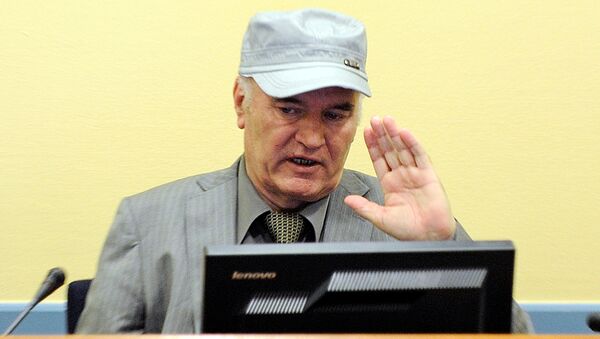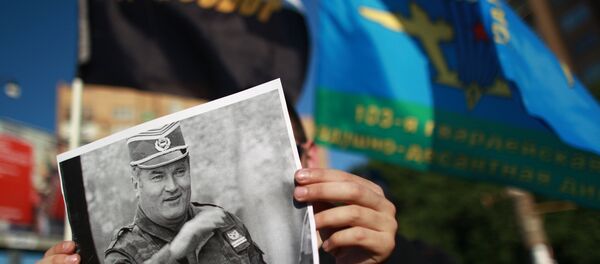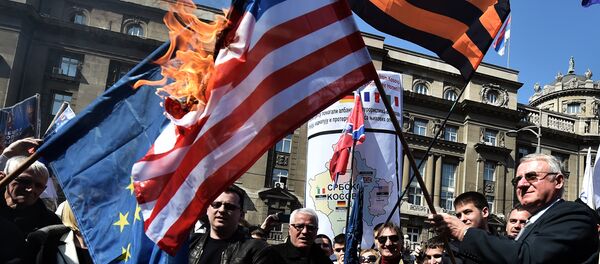BELGRADE (Sputnik) — Ratko Mladic, who is currently awaiting the ruling of the International Criminal Tribunal for the Former Yugoslavia (ICTY) in detention, does not expect the tribunal's judges to be impartial, Darko Mladic said.
"In case of General Mladic, two of the three judges are in an open conflict of interest. In other cases, where they tried other defendants, they mentioned him in the verdict as guilty for the events that General Mladic is accused of perpetrating," the ex-commander's son stressed.
According to Darko Mladic, his father considered the Hague Tribunal "not a court but a NATO commission" and believed that the ICTY violated his right for protection and medical treatment.
READ MORE: Mladic Defense Witness Found Dead in Hotel Room on Eve of Court Appearance
In early November, Mladic’s defense asked the ICTY to postpone the verdict and demanded the court publish Mladic’s medical documents before the verdict. The Russian Foreign Ministry has expressed Russia's readiness to provide medical treatment to Mladic on its territory, but the ICTY refused to temporarily release Mladic for treatment in Russia.
The verdict in Mladic’s case is set to be announced by the tribunal on Wednesday. Darko Mladic said that the legal battle will continue after the verdict as either the prosecutors will challenge a not-guilty verdict, or Mladic’s defense team will challenge the opposite ruling.
READ MORE: Hague Tribunal Prosecutor Demands Life Sentence for Mladic
The position of both the defense team and Mladic’s family implies that the ICTY has failed to prove the former military official’s guilt in any of the criminal counts.
The trial in Mladic’s case began on May 12, 2012, following his arrest by the Serbian authorities in 2011 after the ex-military official had been fleeing justice for years.
BIRN Publishes Ratko Mladic Trial E-Book https://t.co/zl8JA65OwV #MladicTrial pic.twitter.com/viYK9fKdLh
— Balkan TJ (BIRN) (@BIRN_BTJ) November 14, 2017
Crisis in Ukraine
Ratko Mladic believes that the current crisis in Ukraine is similar to the crisis in Yugoslavia.
"His [Ratko Mladic's] main idea is that the break-up of Yugoslavia is the great tragedy. Not a disintegration but a break-up. He believes that this has been done from the outside with the help of assistants from within. Today, we see the same improved recipe in other countries, from Libya and Syria to Ukraine. The Ukrainian scenario is a modern version of the Yugoslav scenario, which might have been an experiment of NATO," Darko Mladic said.
A number of bloody ethnic and religious conflicts took place in Yugoslavia between 1991 and 1995, affecting most of the former Yugoslav republics and leading to the the break-up of the country.




